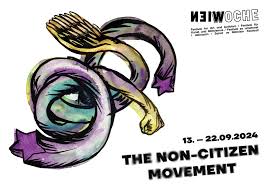The Filipinx health workers have been a substantial part of Austrian society ever since the 1970s. To this day, many well-trained and (over)qualified Filipinx work as nurses or in healthcare facilities. They have learned the German language and adapted to the local customs, traditions and norms. Despite the ongoing shortage of nursing staff in the European Union, the long nostrification process makes it difficult to work in Austria. The attempt to sign a newest Memorandum of Understanding between the Philippines and Austria in order to attract new workers to Austria seems to have receded into the distant future, despite efforts.
In this panel we will discuss questions around the working conditions of the Filipinx healthcare workers in Austria. How are they welcomed and how do the repatriation projects look like? Could we speak of reciprocity? Where does Austria stand in relation to the EU in terms of acquiring new labor power? What role do diplomatic and political functions play?
Participants:
Camilo Antonio, artistic activist at UrbanNomadMixes, Vienna
Patricia Yvonne Caunan, Undersecretary for Policy and International Cooperation, Department of Migrant Workers, Republic of the Philippines
Isabelle Ourny, International Secretary of the Austrian Trade Union Federation
Ellene Sana, Executive Director, Center for Migrant Advocacy, Republic of the Philippines
Moderator:
Ralph Chan, Sociologist, Vienna











